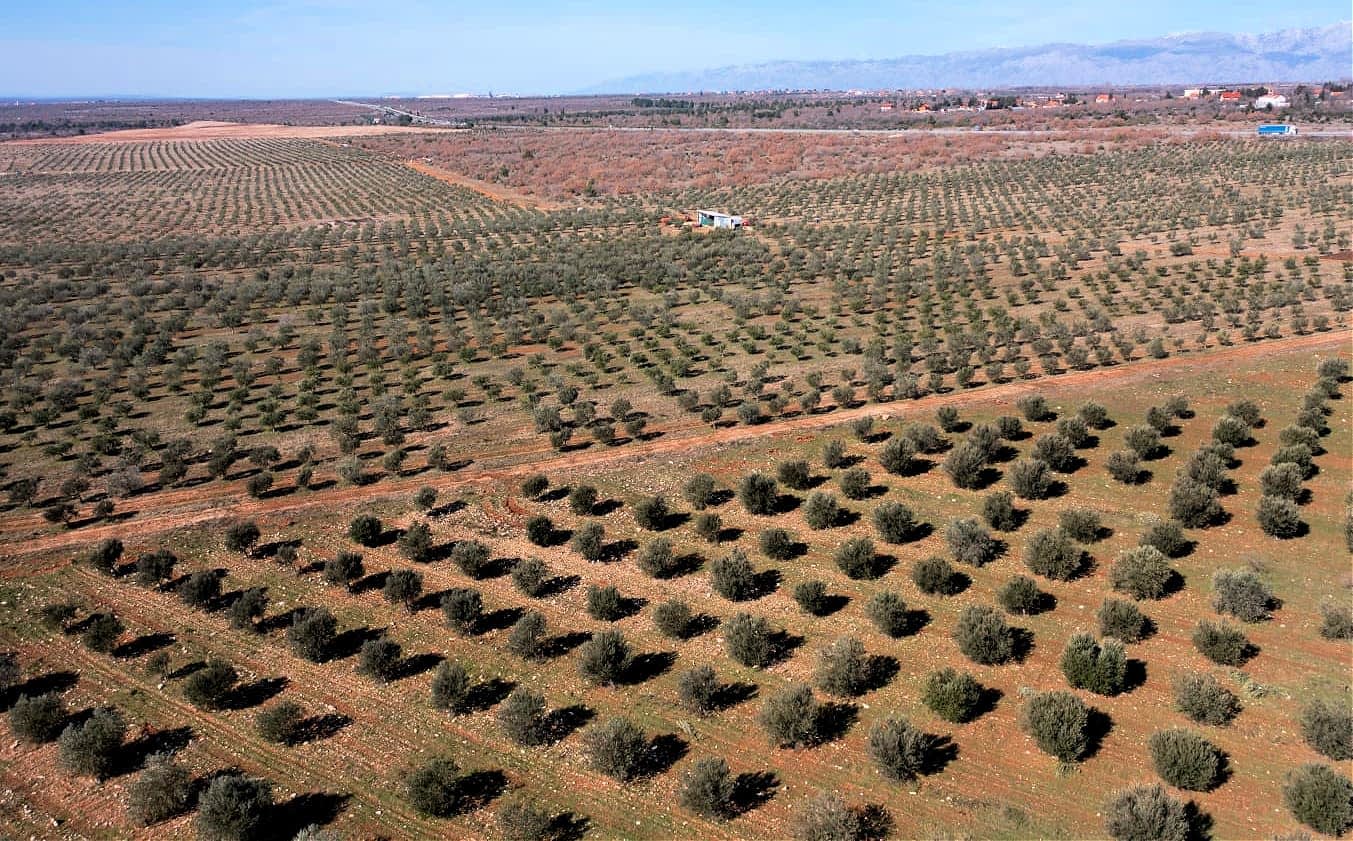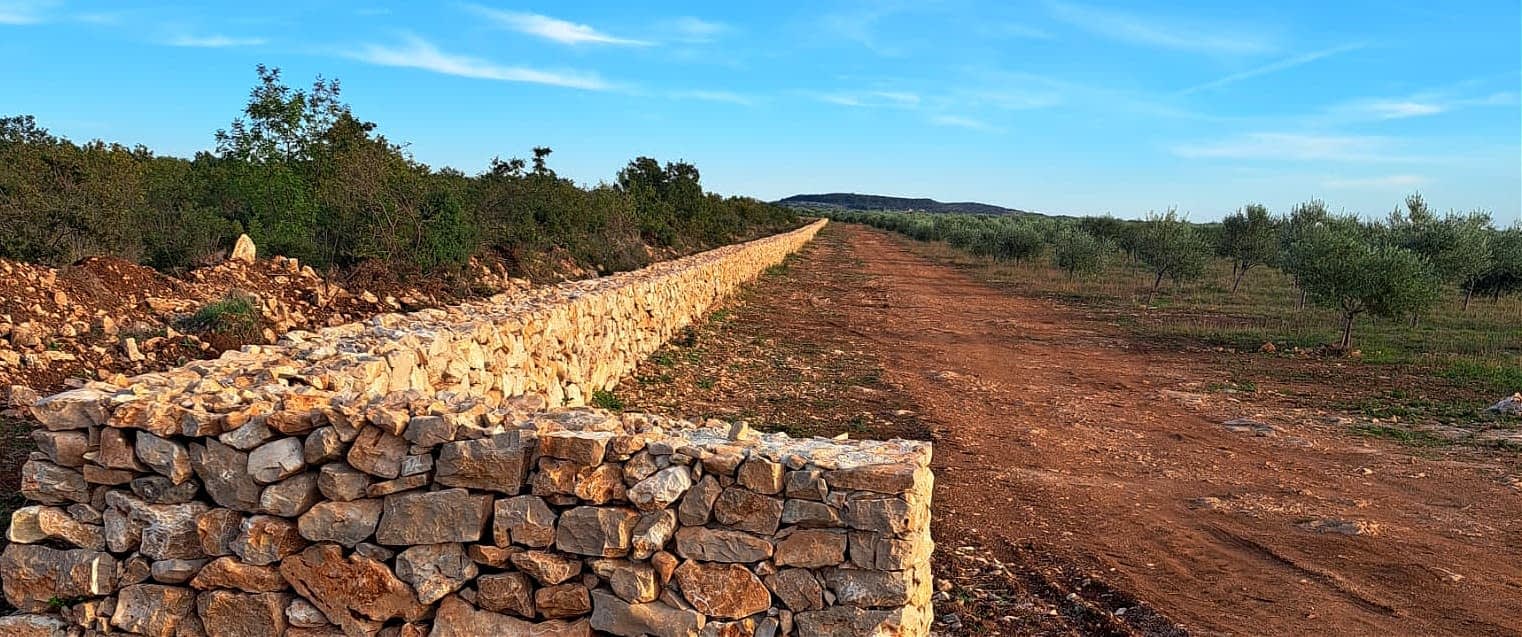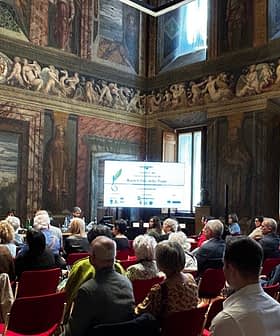Since they picked and transformed their olives in the past couple of months, Croatian growers have been enjoying their Olio Nuovo.
Numerous local competitions are being held in Istria and Dalmatia, the country’s two largest olive-growing regions.
Prominent among them is the 14th Olio Nuovo and early-harvest wine-tasting event held in Nadin, Dalmatia. Producers from around the country submitted 98 samples to the event.
See Also:Producer ProfilesBeing recognized for producing the best Olio Nuovo from Croatia’s autochthonous varieties is a matter of prestige and a goal for some producers.
“It was for me,” said Denis Plastić, 44, an olive grower and winemaker from Nadin, who grows olives and vines on 300 hectares.
Plastić did not hide his satisfaction with being awarded the best autochthonous extra virgin olive oil for his Oblica, which received a score of 104 of 110 points.
“Indigenous varieties with the aim of promoting them at this competition are particularly evaluated,” said Tomislav Glavić, the organizing committee president.
Along with his monovarietal, Plastić received a second award for his Oblica, Coratina and Lecin blend, which received 102.5 points.
His success is even more remarkable given the challenges posed by climate extremes this year.
Droughts, heat and frequent storms dried the soil during spring and summer. The drought’s impact was so extreme that it looked like there would be no olives to harvest until the first rains in September.
The situation was especially pronounced in the shallow clay soils and meliorated karst topography above Kraljevac, where Plastić leased 20 hectares of abandoned state land 10 years ago and planted 4,800 olive trees of domestic and imported varieties.

“I watered the trees all July and August,” Plastić said in response to how he overcame the drought.
With the help of friends, he brought water from the Benkovac waterworks in tankers on several occasions, which cost him around 25,000 kronor (€3,300). The rest of the total of 3,000 cubic meters was obtained from the Vlačina state reservoir.
“I don’t have an irrigation system, which was an additional problem with watering,” Plastić said. “The grove was watered in a classic way with hoses around each olive tree.”
With the help of his parents, wife and son, Plastić completed all the necessary work in the groves in time for the harvest.
“We collected the olives on October 10,” he said. “It turned out to be the optimal time for the variety. The same day we transformed and properly stored the oil.”
While the hot and dry weather presented plenty of challenges, Plastić said that one of the few benefits was the lack of disease that came with it.
“When we don’t have Peacock’s eye (Spilocaea oleagina), which is a big problem elsewhere,” he said. This year there also were no pests, not even the olive fruit fly, so all the fruits were healthy at the time of harvest.
Plastić and other olive growers in the area rarely spray olives, and when they do, they use only the products permitted in organic agriculture.
From the beginning, his production has been based on the principles of virgin soil, autochthonous varieties and organic agriculture.
Harvesting is done by hand, and the fruits are processed with the most modern cold extraction technology by the multi-award-winning Nadin Oil Company, owned by Željko Vrsaljko.
The oil is stored in stainless steel tanks before being packaged to sell in dark ceramic half-liter bottles.
“The most important thing is that the product is ok,” Plastić said. “We have feedback, and none of the customers have negative remarks.”
Along with the local competition, Plastić has enjoyed plenty of international success. His oils were awarded in Tokyo and at the 2022 NYIOOC World Olive Oil Competition, the world’s largest olive oil quality competition.
“Being the best at the biggest and most prestigious olive oil competition in the world is the dream of every olive grower,” Plastić said. His 2Storije brand was awarded Gold at both the 2021 and 2022 editions of the NYIOOC.
Along with conscientious work, Plastić has also been known to experiment. He is the first well-known producer to sea age his extra virgin olive oils in an underwater wine cellar near the island of Pag. He plans to repeat the process this year, tweaking the packaging slightly to get an even better result.
Plastić said sea aging the olive oils increased their shelf-life, allowing the products to maintain their health benefits for longer than usual.
This year, Plastić produced 1,500 liters of olive oil from his trees, not all of which have entered maturity. His groves are still recovering from a wildfire two years ago, which damaged 1,200 trees and for which he is still waiting for compensation from authorities.
If he manages to sell each bottle for 100 kronor (€13.26), the revenue from 250 liters will only just cover his watering, fuel, milling, fertilizers and packaging costs.
However, Plastić and his family could not imagine doing anything else other than growing olives. Although, they do plan to integrate their product more with local tourism.
He also plans to build a mini-tasting room and is restoring the 1,200-meter-long stone wall surrounding the olive grove may also prove to be an attraction.

Plastić is currently reconstructing the wall using traditional methods with funds from the European Union’s rural development fund.
When he finishes the work, he will receive 700,000 kronor (€93,000), which will cover the costs of repairing the wall solely from natural stone without any binding material.
The construction method was classified as part of UNESCO’s intangible world heritage in 2018, with this type of wall mainly built in Spain, Cyprus, Greece, Italy, Croatia, Slovenia, France and Switzerland.
“Who dares — wins,” concluded Plastić, quoting the slogan of the SAS, a branch of the British Special Forces.
He is also convinced that in time he will be able to solve his irrigation problem, without which there is no serious olive growing.









